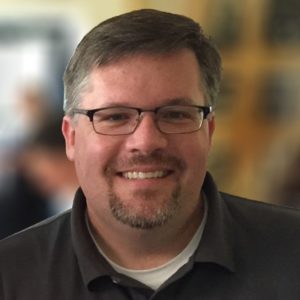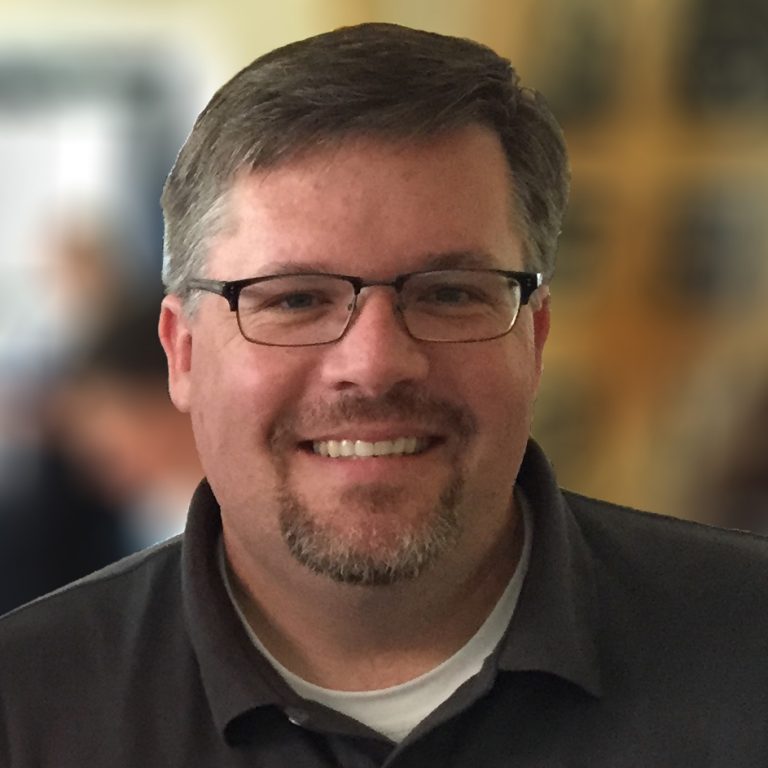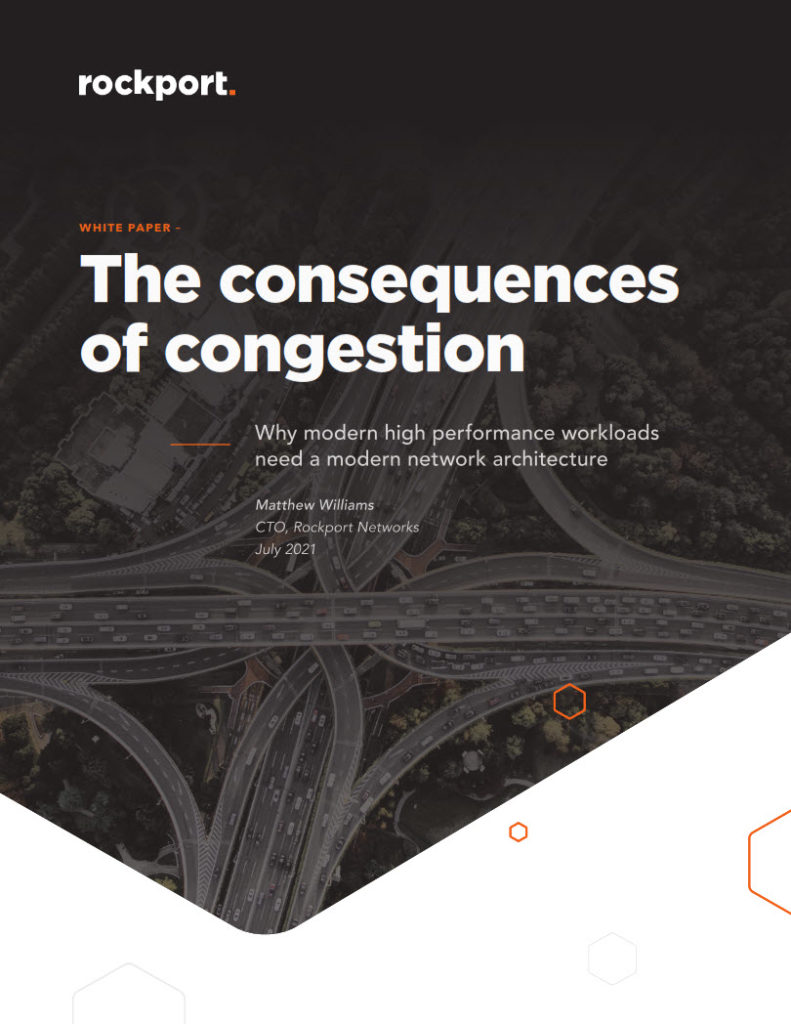
John West, SC16 General Chair
In this interview from the SC16 Blog, SC16 General Chair John West gives his perspective on the upcoming conference. As the world’s largest gathering of supercomputing professionals, SC16 takes place November 13-18 in Salt Lake City.
John West works at the Texas Advanced Computing Center (TACC) as the Director of Strategic Initiatives. At TACC, he is involved in identifying new communities that can benefit from TACC’s advanced computing technologies and in connecting industry partners to TACC’s advanced computing expertise. He has been a volunteer with SC off and on since 1996.
Undertaking the role as General Chair is no small task. What motivated you to take on such a significant responsibility?
John West: The SC conference has meant a great deal to me on a personal and professional level over my entire career. SC is large enough – from the exhibit floor to papers, workshops, and tutorials – that you can adapt what you see from year to year and almost feel like you are attending a whole new conference. Being a volunteer is of course a chance to give back, but it has also been an enormous pursuit for me as well. I’ve been exposed to personal and professional opportunities that I likely would have never found other than through my connections with other conference volunteers. Now that I have served in a variety of volunteer roles, it seemed like a natural fit to be the general chair and I’m fortunate enough to have an employer who supports me in this role.
As an SC veteran, what advice do you give someone who is a first-time attendee?
John West: You should spend time planning out each day that you are onsite, and by that I don’t mean lining up back-to-back sessions all day long. Give yourself time to experience the exhibit floor, and you absolutely need to make time for networking. The connections you make at an SC conference can enrich your professional and personal life in unexpected ways for years to come.
Also, take advantage of the sessions that are resources targeted at new attendees, take time to attend a “Birds-of-a-Feather” session, and definitely take a moment to stop by the info booths which are staffed by experienced SC volunteers who were once newbies themselves and are happy to help. I’m a pretty dedicated introvert, but with a conference as diverse as SC it just makes sense to get some advice on where to find the things that are most relevant to you.
How is SC trying to cultivate the next generation of computer scientists, networking, and high performance computing experts?
John West: This is an important endeavor for both the SC committee and HPC community as well. We must look to the next generation to advance the field and break through our current technical challenges. You can find evidence of our efforts infused throughout the conference – whether that be in the revamped Students @ SC program (which includesstudent research opportunities, Student Cluster Competition, Student Volunteers,Student/Postdoc Job Fair, and Mentor-Protégé Program) or in our proactive outreach to local high schools inviting them to spend a day at an SC conference.
How did SC16’s emphasis on the HPC provider community come about and what can attendees expect as a result?
John West: For SC16, we’re beginning a three-year thrust that will expand state-of-the-practice discussions with content throughout the conference tracks that emphasizes the innovation happening in operations, tools, and software through today’s HPC centers. I’ve spent my career so far in HPC operations of one kind or another, and I know firsthand that there is an incredible wealth of knowledge and expertise that gets developed in supercomputing centers. SC is well established as the place to share academic results; we believe SC can have a large impact on our community by providing developers and researchers with a more operational focus with a forum to share their results as well.
For those not well versed in the behind-the-scenes of an SC conference, what type of prep work is required in pulling it off?
John West: The conference is built upon many layers and moving parts that most attendees do not even know exist – it takes about three years and a committee of 500 volunteers to organize and execute every SC! From building the flow of the technical sessions in the convention center to determining where the posters are displayed – we make it a point to consider how each decision could impact the attendee experience and we don’t take that responsibility lightly.
Unlike many similar conferences, SC is driven predominantly by volunteers, so we have “skin in the game” and take pride in making each conference the best experience possible. We also take attendee feedback very seriously and closely review attendee survey results from previous years, often implementing positive changes as a result.
What are some of the biggest challenges you expect to face as the conference ramps up?
John West: We are fortunate to have a very experienced and dedicated team when it comes to planning this conference; we make it a priority to pass knowledge or “lessons learned” from one year to the next to ensure the conference goes as smoothly as possible. However, each venue presents a unique set of circumstances that always needs to be addressed as the conference grows and continues to transform every year.
This year will be no different. Our goal is to meet each challenge so that the attendee never even knew the it existed in the first place. We’re usually working furiously before, during, and even after the conference, which is especially true for the amazing people behind SCinet: they are the first to arrive and the last to leave.
During your preview presentation at SC15, you mentioned that attendees can expect SC16 to be more open and supportive to those with families. Can you elaborate more on what people can expect and why this is important to implement now?
John West: Today it seems that both adults in a household are working and we wanted to be an organization that recognizes that fact. We did not want conference attendance to be a choice of either/or for such households, so for the first time, SC will be providing on-site child care services at the convention center for a small fee.
So regardless if both parents are involved in the field or not, this will provide an opportunity for the family to be together while one or both parents enjoy either parts or all of the conference. Of course, it is entirely optional, but we listened to our audience and this seemed to be a growing need. I realize this is a small step, but hopefully it is the first of many more small steps to come.
Why should people be excited that SC16 is being held in Salt Lake City, Utah?
John West: The challenge of an SC Conference is that we have outgrown certain cities, but are also not big enough for others. We also have certain technical requirements that not all convention centers can meet. This limits our options when it comes to selecting a host city for a particular year. We also are sensitive to geographic location so that it isn’t a major travel challenge and has the transportation infrastructure to handle our numbers and freight load (last year SC handled more than 1 million pounds of freight for the first time).
Salt Lake City offers a fantastic downtown layout, incredible natural beauty, and a supportive and welcoming tourism and hotel community. The city itself has made many changes and improvements to better address the needs and demands of a conference of our size. We hope attendees will enjoy SC16 even more than SC12, the last time we were in Salt Lake City.
There is an added spotlight on diversity this year – how did this come about and how will it be impactful from an attendee standpoint?
John West: This has been an important subject that we have discussed for several years–its importance has been evident in various sessions and activities onsite at previous SC conferences. This year we have formalized our efforts with the creation of the SC Diverse HPC Workforce committee. The goal of this committee is to not limit our efforts to onsite activities, but rather keep this discussion at the forefront of industry leaders and also smaller organizations throughout the year. It is important that we as an organization lead by example.
For the first time SC has published the demographics of its volunteer committee, and I’ve been updating those numbers throughout the year as our committee has grown. Understanding where we are today is the foundational step for making positive change for the future, and our own numbers show that, while we have a good start in some areas, we are not nearly as diverse as we should be.
In your opinion, what are a few of the challenges/opportunities facing the industry today?
John West: HPC – or advanced computing, or supercomputing, or whatever we call it – is already having transformational impacts on just about every aspect of daily life. Computing is the fundamental enabler of advances in medicine, transportation, weather prediction, global warming, and even the development of better helmets for a child playing football. The problems we have to solve in order to meet the demands of the scientists and engineers that use our capabilities are unbelievably complex, and that gets back to why a diverse workforce is so important for our community. We need the best solutions to the challenges we face today, and we cannot be sure we are getting the best ideas unless we ask all the smart people we can find.
We also need to do a better job of explaining what we do to…everyone, from policy makers and legislators to students and scientists. The good news is that we do our jobs well enough that it is often just assumed HPC will be there with the tools science needs when it needs them. But the truth is that in order to secure the resources and talent we need to be successful, we need to be visible.
You’ve been posting on Facebook as #SCChair, should we expect more of these posts in the future?
John West: It is important to me that people see the many faces behind the SC conferences. We are not some giant corporation, but rather a sea of volunteers spread across many different organizations and industries. I hope to continue this conversation in the months to come as we ramp up towards SC16 and encourage open discussion for the greater good of the conference and the industry in general.
Finally, what advice would you give for someone interested in getting involved as a volunteer?
John West: Find a particular area that interests you and then talk to the folks volunteering in that area. With so many volunteers the odds are very good that you know someone who is already part of the conference. Just as we are always looking for the next wave of new scientists or researchers, we also need new volunteers to bring in energy and fresh ideas. A great resource to understand the scope of what we do and where you might fit is the committee listing on the conference website. You can also fill out a volunteer form or go up to one of the information booths onsite in November.
Editor’s Note: John West is the founder of insideHPC. He sold the business to Rich Brueckner in 2010.




